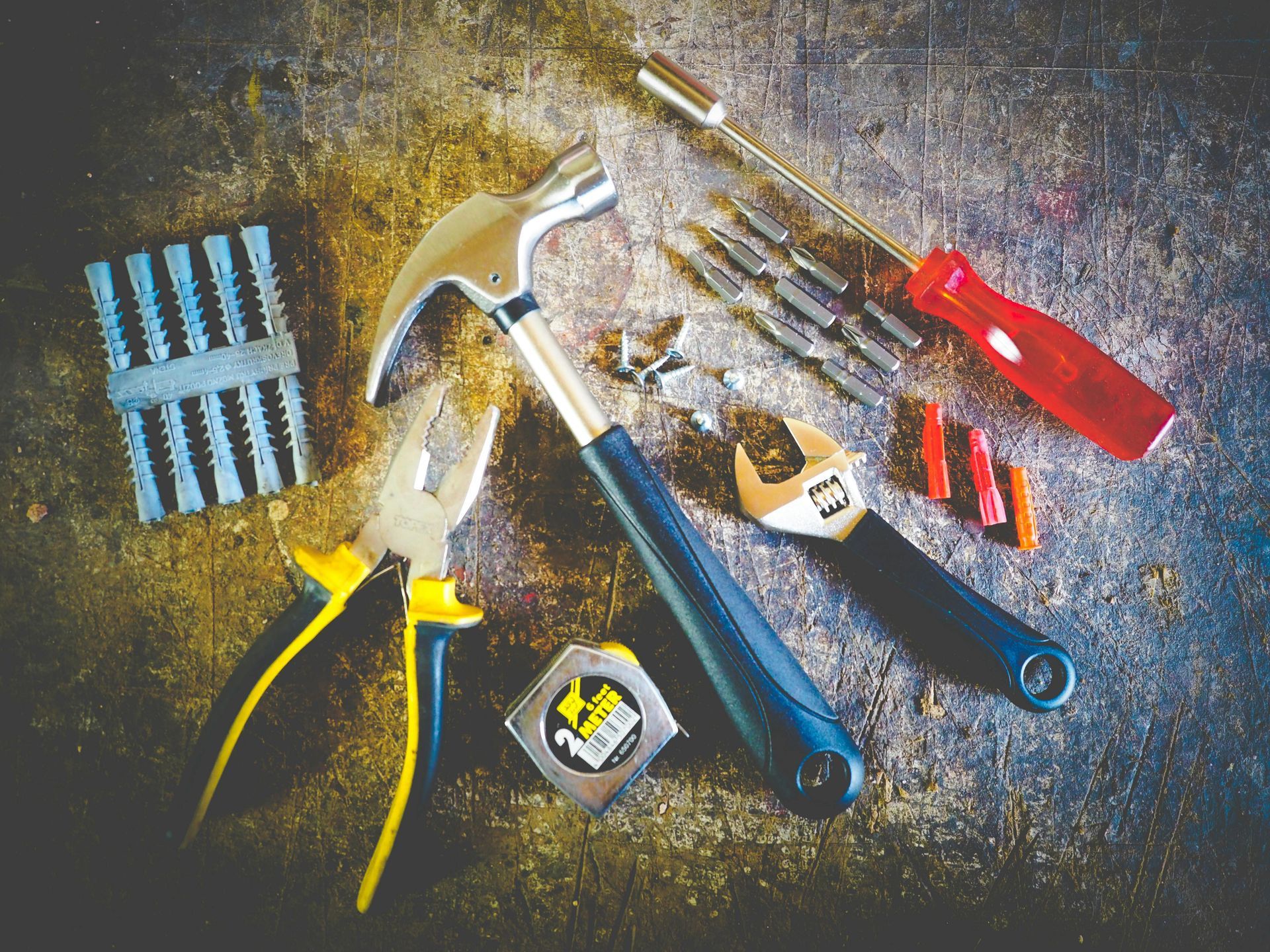HOME REPAIRS ARE NOT COMPLETED UPON REINSPECTION: WHAT TO DO

Buying or selling a home is a process filled with excitement and challenges. Among the most critical parts of this journey are inspections, repairs, and reinspections. As a seller or buyer, you expect everything to be completed on time and according to agreements. But what happens when the repairs agreed upon after a home inspection aren't done—or are incomplete—by the time of reinspection?
This scenario is not uncommon and can create anxiety, frustration, and delays for all parties involved. To prevent this, you need to know your rights, responsibilities, and how to handle the situation effectively. In this blog post, we will dive deep into what happens when repairs aren't completed before the reinspection and how to navigate this situation like a pro.
What Is a Home Reinspection and Why Does It Matter?
A home reinspection occurs after a homebuyer orders a home inspection as part of their due diligence. If the original inspection identifies issues—like plumbing problems, roofing concerns, or HVAC malfunctions—the buyer and seller negotiate the necessary repairs. Once those repairs are completed, the buyer may schedule a re inspection to confirm that the work has been done properly.
Reinspection is important because it:
- Ensures the repairs meet agreed-upon standards.
- Provides peace of mind for the buyer.
- Protects the seller from potential liability.
Common Reasons Repairs Are Not Completed Before Reinspection
In an ideal world, all repairs are completed by the agreed-upon date, but this doesn’t always happen. Here are some of the most common reasons for delays or incomplete repairs:
1. Contractor Issues
Sellers often hire contractors to handle repairs, but delays can occur due to scheduling conflicts, supply chain problems, or poor workmanship.
2. Misunderstanding of Repair Agreements
Sometimes the seller and buyer may have differing interpretations of what repairs are required. A vague repair agreement can lead to disputes or incomplete work.
3. Cost Constraints
If the seller underestimated the cost of repairs, they might delay or cut corners to save money.
4. Time Crunch
The tight timeline between the inspection, repair negotiations, and the closing date can leave little room for delays.
5. Neglect or Lack of Priority
Unfortunately, there are cases where the seller might deprioritize the repairs, assuming the buyer will overlook them to close the deal.
What Should a Buyer Do When Repairs Aren’t Completed?
If you’re a buyer and find yourself in this situation, it’s essential to take the right steps to protect yourself and ensure the repairs are completed as agreed. Here’s what you can do:
1. Review the Sales Contract
The first thing to do is revisit the sales contract and repair addendum. This document outlines the repairs the seller agreed to complete and sets expectations for their quality.
Make sure you fully understand the terms:
- Were the repairs to be completed by a specific date?
- Were professional contractors required?
- Was documentation or receipts for the repairs required?
2. Schedule a Reinspection
Order a reinspection by the same inspector who performed the initial inspection. A professional inspector can confirm whether the repairs were done properly or identify incomplete or inadequate work.
3. Document the Issues
Take photos or videos of any repairs that were incomplete or poorly done. Written notes and visual evidence will support your case if disputes arise.
4. Communicate with the Seller
Contact the seller directly or through your real estate agent to express your concerns. A professional yet firm approach can sometimes resolve issues without escalating them further.
5. Request an Escrow Holdback
An escrow holdback involves setting aside a portion of the seller’s proceeds to cover the cost of repairs. The money is only released once the repairs are satisfactorily completed. Escrow holdbacks are common in real estate transactions where repairs are not completed on time.
6. Negotiate a Closing Credit
If the seller cannot or will not complete the repairs, you can negotiate a closing credit. This allows you to receive a monetary concession at closing that you can use to complete the repairs yourself.
7. Delay the Closing
If the incomplete repairs are significant, you may have grounds to delay the closing. Your real estate agent and attorney can advise you on how to request an extension of the closing date while the seller completes their obligations.
8. Walk Away from the Deal
If the seller refuses to complete the repairs and the issues are too significant to ignore, you may have the right to walk away from the deal. Check your contract for contingencies that allow you to back out without penalty if repairs are not completed.
What Should a Seller Do to Avoid Issues with Reinspection?
As a seller, it’s in your best interest to complete repairs properly and on time. Failing to do so can delay the sale, reduce buyer confidence, and even result in legal disputes. Here’s how to avoid these pitfalls:
1. Hire Reputable Contractors
Always use licensed and experienced contractors for significant repairs. Avoid the temptation to cut costs with DIY fixes or unqualified handymen.
2. Keep Detailed Records
Document all repairs with invoices, receipts, and contractor reports. Providing these to the buyer shows that the work was completed professionally.
3. Communicate with Your Realtor
Keep your real estate agent in the loop regarding repair progress. They can help manage buyer expectations and negotiate timelines if necessary.
4. Finish Repairs Early
Aim to complete repairs well before the reinspection date to allow for any last-minute adjustments or fixes.
How to Prevent Repair Disputes Before They Happen
Prevention is always better than cure. Both buyers and sellers can take proactive steps to avoid disputes over repairs:
1. Use a Professional Inspector
Hire a professional and certified inspector who can thoroughly evaluate the property and provide clear recommendations for repairs.
2. Draft a Detailed Repair Addendum
The repair agreement should be specific about what repairs are required, who will perform them, and when they will be completed. Avoid vague language that leaves room for interpretation.
3. Set Realistic Deadlines
Give ample time for repairs to be completed, especially for extensive issues that require specialized contractors or materials.
4. Include Reinspection Terms
The sales contract should specify whether a reinspection is required and who will bear the cost.
Common Types of Repairs That Create Reinspection Issues
Certain repairs are more likely to cause disputes due to their complexity or cost. These include:
- Roof Repairs: Incomplete or poorly executed roof repairs can lead to leaks and water damage.
- Foundation Issues: Foundation repairs require expertise, and subpar work can result in significant structural problems.
- HVAC Systems: If HVAC repairs are not done correctly, buyers may face expensive replacements down the line.
- Plumbing and Sewage: Burst pipes, clogged drains, and faulty water lines are critical issues that must be properly addressed.
- Electrical Problems: Safety concerns arise when electrical repairs are incomplete or done improperly.
The Role of Real Estate Agents in Managing Repairs and Reinspections
A skilled real estate agent can make a significant difference in navigating repair and reinspection challenges. If you’re in Sacramento, working with the best realtor in Sacramento ensures:
- Clear communication between buyers and sellers.
- Thorough documentation of repair agreements.
- Expert negotiation of solutions when issues arise.
Realtors have the experience and knowledge to guide both parties through the repair and reinspection process, ensuring a smooth and fair transaction.
Conclusion
When repairs aren’t completed before reinspection, it’s essential to remain calm, proactive, and solution-oriented. Buyers and sellers alike must understand their rights, responsibilities, and the steps they can take to resolve the issue.
For buyers, thorough documentation and communication are key to ensuring your interests are protected. For sellers, completing repairs professionally and on time builds trust and prevents disputes.
If you're looking to learn more about buying, selling, relocating or get the best real estate experience in the Sacramento area, get in touch with CJ Domondon. His team can provide valuable insights and guidance to help you navigate the market. You can contact CJ Domondon directly to schedule a consultation or discuss your real estate needs.








